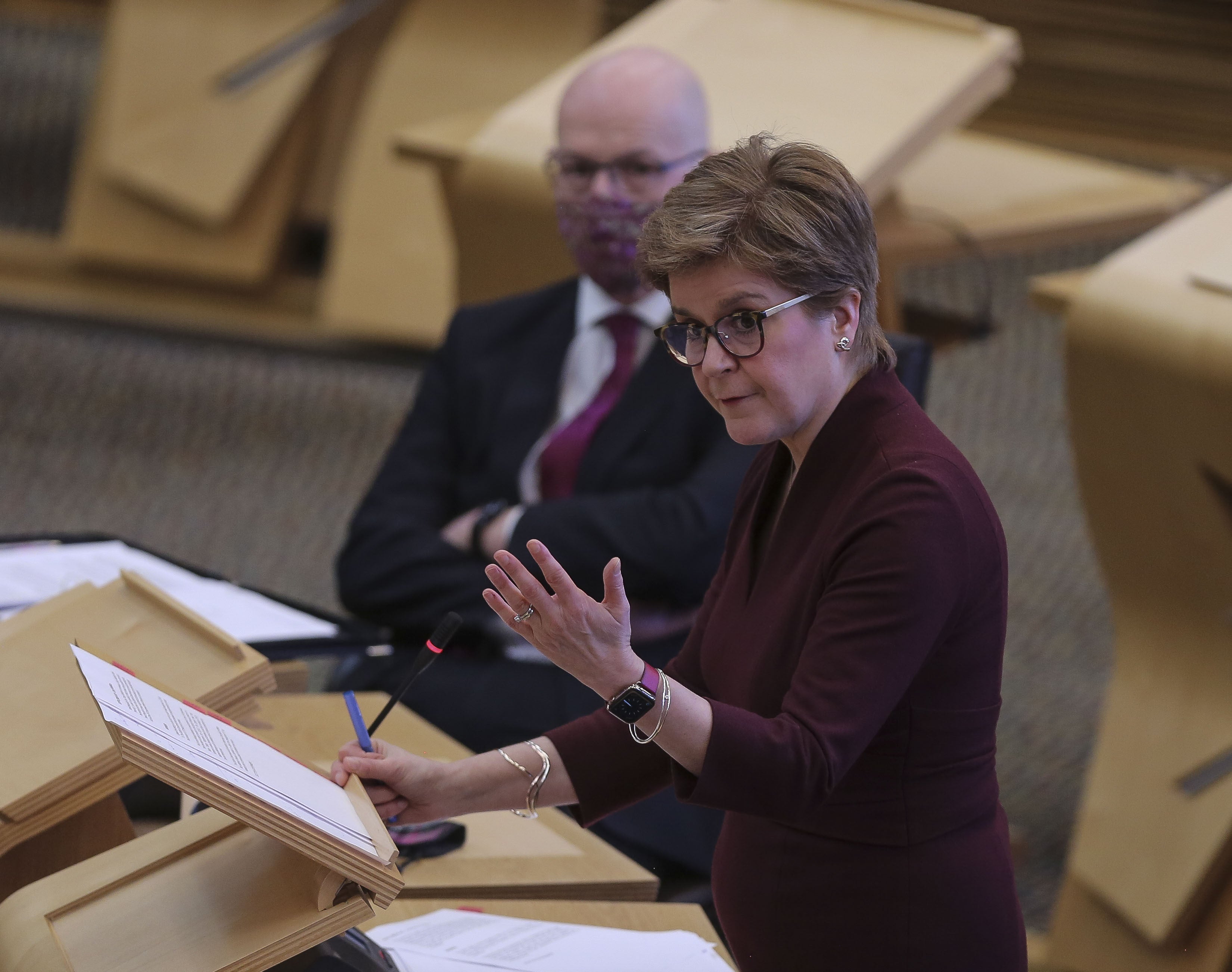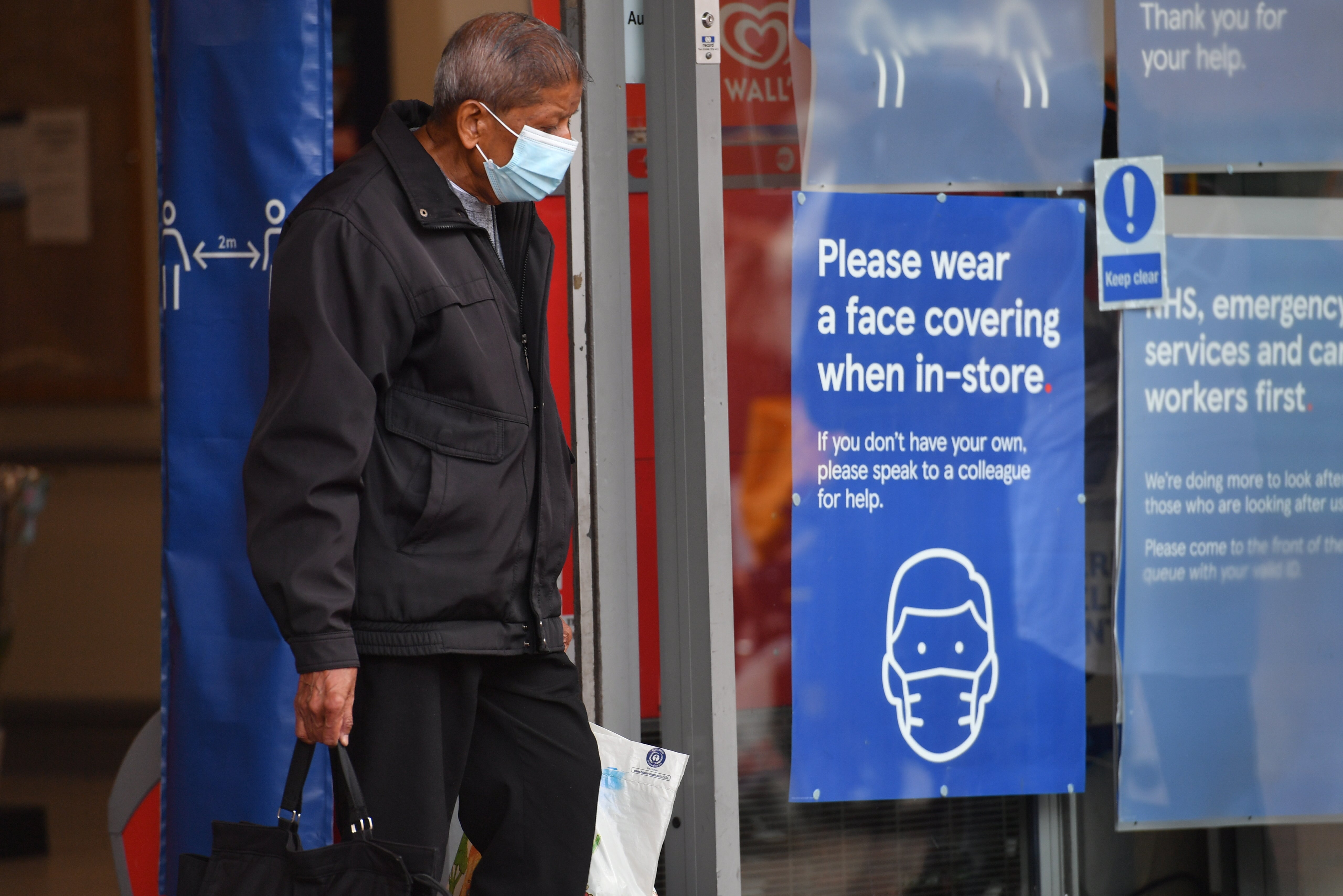What are the coronavirus rules in the four UK nations?
Thursday sees big changes in England with the end of the legal requirement for people who test positive to isolate

Your support helps us to tell the story
From reproductive rights to climate change to Big Tech, The Independent is on the ground when the story is developing. Whether it's investigating the financials of Elon Musk's pro-Trump PAC or producing our latest documentary, 'The A Word', which shines a light on the American women fighting for reproductive rights, we know how important it is to parse out the facts from the messaging.
At such a critical moment in US history, we need reporters on the ground. Your donation allows us to keep sending journalists to speak to both sides of the story.
The Independent is trusted by Americans across the entire political spectrum. And unlike many other quality news outlets, we choose not to lock Americans out of our reporting and analysis with paywalls. We believe quality journalism should be available to everyone, paid for by those who can afford it.
Your support makes all the difference.All coronavirus laws in England including the legal requirement for people who test positive to isolate has ended today.
On Monday, Boris Johnson set out the strategy for “living with Covid”, which also includes plans to scrap free universal testing in April.
Those who receive a positive Covid test will still be advised to stay at home for at least five days, but from today will not be obliged to under law.
Here, we take a look at what the current coronavirus rules are across the UK nations:
England
Boris Johnson delivered his vision for living with coronavirus, including an end to mandatory self-isolation and universal free tests for the general public in England, on Monday.
The Government’s Living with Covid plan sets out the legal obligation to self-isolate following a positive coronavirus test will be axed as of Thursday.
The official public health advice will remain that both adults and children testing positive for the virus should stay at home for five days, but this will not be enforced by law.
The Government will also no longer ask vaccinated contacts, and those under 18, to test for seven days and will remove the legal requirement for contacts who are not vaccinated to self-isolate.
Free universal symptomatic and asymptomatic testing will also end for the general public in England from 1 April.
The remaining symptomatic testing will be focused on the most vulnerable, with the UK Health Security Agency (UKHSA) set to determine the details.
Also from Thursday, public transport users in London will no longer be required to wear face masks.
Transport for London (TfL) announced that face coverings will stop being a condition of carriage following the “shift in the Government’s approach” towards living with coronavirus.
Scotland
Scotland’s mandatory coronavirus vaccine passport scheme is to be scrapped from Monday, First Minister Nicola Sturgeon announced this week.
She said this will happen assuming “no significant adverse developments” in the fight against the virus occur.
The scheme had required Scots to show their vaccination status before entering a nightclub or attending a large event.
While the legal requirement to wear masks in some settings including on public transport and in indoor venues are to be dropped from 21 March, the Scottish Government will still “strongly recommend” people continue to use them.

Ms Sturgeon made clear the Scottish Government would “continue to ask those who test positive for Covid to isolate for the recommended period”.
The requirement for businesses to retain customer contact details in case this is needed for contact tracing is also expected to end on 21 March.
Ms Sturgeon also highlighted her “frustration at the position of the UK Government” on free testing and said the Scottish Government will look to continue providing free lateral flow tests longer-term.
In a change of stance, the Scottish Government is now advising people to do a lateral flow test twice a week – moving back from the position where the public was asked to do a test before meeting with other people.
Wales
Wales is expected to announce longer-term plans for living with Covid alongside the outcome of its latest review of regulations on March 4.
Since 28 January, the country has been in Coronavirus Alert Level 0, meaning most of the rules on socialising have ended.
On 18 February, the Government also scrapped the requirement to show the NHS Covid pass to go to indoor and outdoor events and venues like cinemas, theatres and nightclubs.

Face masks are still a legal requirement on public transport and in some indoor places, such as shops, GP surgeries, hospitals and care homes.
Welsh First Minister Mark Drakeford also said before Boris Johnson’s announcement on Monday that it would be “premature and reckless” to wind back the testing programme.
There are no formal plans to end self-isolation rules following a positive test in Wales.
However, Welsh economy minister Vaughan Gething previously said it was possible all Covid restrictions in the country could be lifted by the end of March.

A Welsh Government spokesperson said: “Self-isolation has played an important role in breaking the chains of transmission of the virus and it continues to be part of our response to managing the pandemic.
“We will be announcing our longer term plans alongside the outcome of our next 21-day review of regulations on 4 March.”
Northern Ireland
Northern Ireland’s Health Minister Robin Swann has said his department will “carefully consider” the Living With Covid plan unveiled in England.
Reacting to Boris Johnson’s announcement on Monday, Mr Swann said no decisions have been taken on any changes to test and trace in the region.
He did however say the programme would remain “under review to ensure it remains proportionate and effective”.

Mr Swann said: “Any policy changes will be informed by the latest clinical and scientific advice and consideration of the Covid situation in Northern Ireland.”
Coronavirus legal restrictions in Northern Ireland have already been replaced with guidance.
Mr Swann revoked the rules on 15 February, meaning people no longer need to wear face masks in public settings or show Covid certificates to gain entry to venues.
While the curbs were removed from the law, they are being kept as official guidance.
Self-isolation guidance on the infection has not changed and neither has the Executive’s “work from home where possible” message.